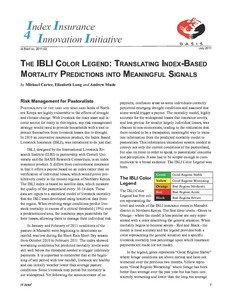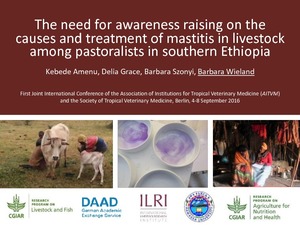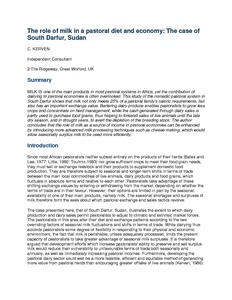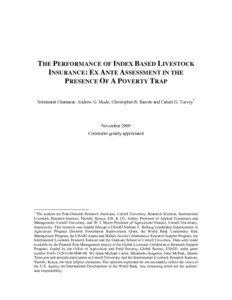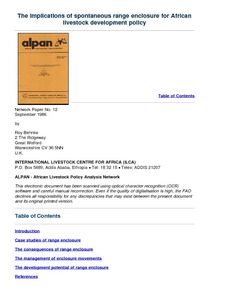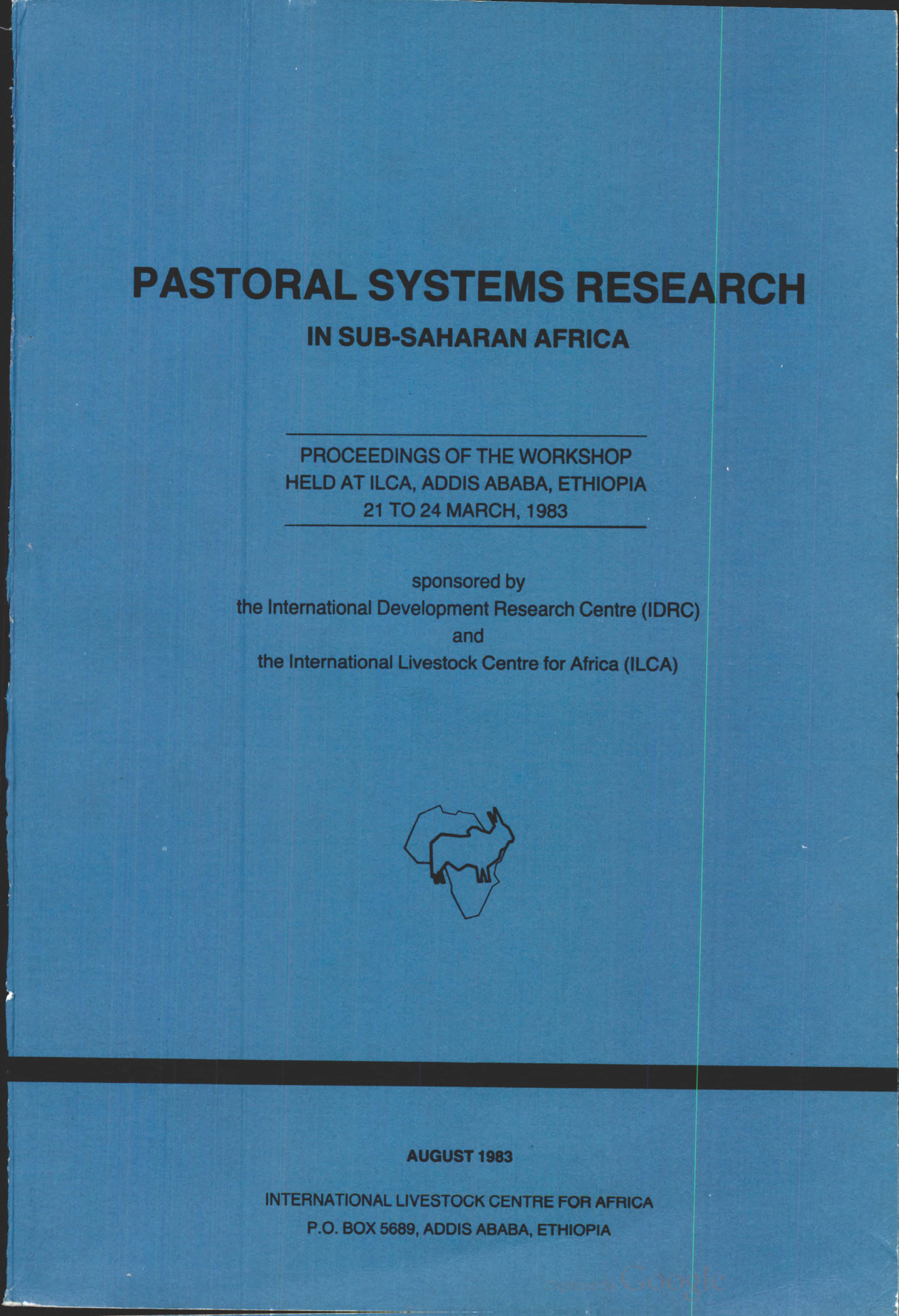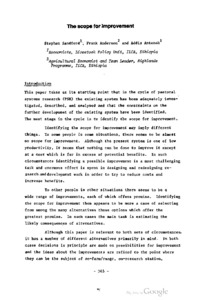The role of abandoned pastoral settlements in the dynamics of African large herbivore communities
A number of studies have begun to show the large impact that pastoralism has on African savanna ecosystems. Here we look at the impact of abandoned settlements on the distribution of the large ungulates of Amboseli, Kenya.
Monthly dung counts show that all 9 species studied are attracted by settlements for up to a century after abandonment.
The need for awareness raising on the causes and treatment of mastitis in livestock among pastoralists in southern Ethiopia
Ethiopia has high prevalence of clinical and subclinical mastitis in different livestock
species and production systems and these contribute substantially to poor
productivity in affected herds. Thus far, studies have focused on identification of
microbial pathogens and associated risk factors for mastitis. However, relatively little
is known about the knowledge and beliefs of livestock keepers regarding prevailing
livestock health problems in general and mastitis in particular. An accurate
The role of milk in a pastoral diet and economy: The case of South Darfur, Sudan
Describes the characteristics of dairy production and processing in South Darfur and provides an analysis of the way in which pastoral families vary their diets according to seasonal food shortages and shifting terms of trade between milk and food grains.
The performance of index based livestock insurance: ex ante assessment in the presence of a poverty trap
This paper evaluates the effectiveness of a new index-based livestock insurance (IBLI)
product designed to compensate for area average predicted livestock mortality loss in
northern Kenya, where previous work has established the presence of poverty traps. We
simulate household-specific wealth dynamics based on a model parameterized using rich
panel and experimental data from the region. The simulations allow us to investigate
patterns of willingness to pay for asset index insurance that is imperfectly correlated with
The implications of spontaneous range enclosure for African livestock development policy
This paper examines a process - the spontaneous enclosure of the range by livestock owners - which may rise new problems but also permit new approaches to the development of the African livestock industry. Drawing on case material from Sudan and Somalia, the opening section of the paper discusses some of the spontaneous range enclosure.
The role of risk management in pastoral policy evaluation and poverty reduction
The political economy of livestock and pastoralism in Sudan
The importance of wealth effects on pastoral production: A rapid method of wealth ranking
Discusses the importance of wealth differences among producers in traditional pastoral production systems, describing a rapid method, dependent on informants, for determining the wealth rank of producers within a given community in order to stratify a population of producers before sampling.
The scope for improvement
Discusses the need for identifying sociological and economic possibilities for improvement in pastoral production systems, mentioning the major steps involved, particularly, identification of potential improvements, prediction of their likely impact on net production & quality of life; prediction of the probability of adoption; and assessment of the rapidity with which the improvements will bear fruit.
The potential benefits and challenges of agricultural animal biotechnology to pastoralists
The livelihoods of pastoralists revolve around their indigenous livestock. Combining high
production with disease resistance using genetic engineering is a biotechnological intervention
hailed by some as a promising avenue to mitigate food insecurity and poverty. Considerable
human and financial resources have already been devoted to exploring this option. However, the
challenges are enormous. It is unlikely that such livestock would survive in the harsh ecosystems

